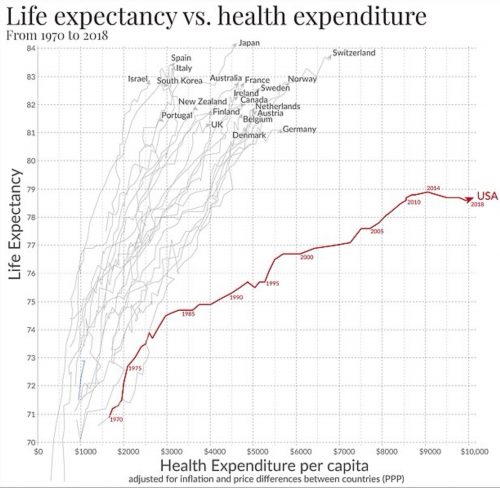My fellow Americans, you’ve probably already seen some of the mocking commentary on a Dr Oz campaign ad, in which he goes shopping for crudité in a Pennsylvania grocery store. He was a bit out of touch. How out of touch? Well, I haven’t lived in Pennsylvania for 22 years, and even I know there isn’t a “Wegner’s” there, it’s “Wegman’s”. And then the way he stands there and grabs at a few things in reach…Oz hasn’t been grocery shopping in ages, and it shows.
The real question, though, is John Fetterman’s reply to this rich man going shopping for the first time ever effective campaigning? You bet it is.
Dr. Oz's little crudite bit raised Fetterman more than $500k since yesterday, including $65k raised off a sticker that said "let them eat crudite"
— Charlotte Alter (@CharlotteAlter) August 16, 2022
The amount of money it takes to run for office is unreal, but it helps when your opponent is so flamingly incompetent.
In other fun Oz smackdowns, the Republican party is cutting its losses and spending less money in Pennsylvania. That’s gotta sting, and it’s also going to have down-ballot effects. Watching Republicans screw up is wonderfully entertaining.
And then, Oz was asked how many houses he owns, which is the kind of question no one ever asks me (my answer would be one, sort of, since we still owe the bank on it). Oz stammered out an answer of two, but he was more concerned with qualifying it and hedging his numbers. The Daily Beast counted for him. It’s TEN. Ten houses.
• a 9,000-square-foot mansion in New Jersey
• a 7,000-square-foot country house in Pennsylvania
• a condo in New Jersey
• a piece of residential real estate in Sariyer, Turkey
• another piece of residential real estate in Sariyer, Turkey
• a Manhattan condo
• another Manhattan condo
• an oceanside mansion in Palm Beach, Florida
• a cattle farm in Okeechobee, Florida
• and a piece of residential property in Konya, Turkey, which appears to be used as a student dormitory
Each one is probably worth far more than my house. He could probably pay off my mortgage for me with a fraction of his monthly pay-out for houses.
This is a good question to ask any big wig politician of either party. You know, I’m going to be generous and suggest that three is not an unreasonable number, since they’re rich: a real home in their home state, plus a residence near the capitol, and what the heck, I’ll throw in a vacation home somewhere nice. Anything beyond that, you’re just pigging out at the trough.
While we’re at it, another sin of the revoltingly wealthy is investing in the stock market. You should be required to divest.













